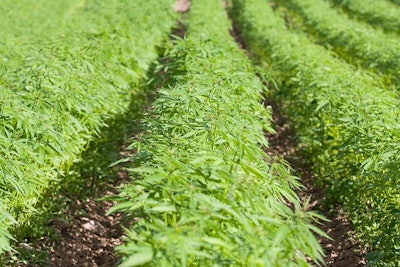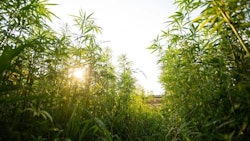
New York’s Cornell University plans to launch a three-year multi-state and multi-regional study aimed at taking the guesswork out of hemp weed control strategies.
Ultimately, the research will help growers assemble more effective integrated weed management programs, according to Lynn Sosnoskie, assistant professor in the School of Integrative Plant Science.
“It’s just going to take away some of the uncertainty,” Sosnoskie told Hemp Grower. “A lot of what we’re doing right now is guesswork. … Hemp is an ancient crop, but it’s a new crop at the exact same time because there were so many prohibitions against working with it that we are starting off in many respects from scratch.”
The study’s goals are to assess the competitiveness of grain, fiber and floral hemp with weeds, evaluate the efficacy and safety of integrated weed management practices in the emerging crop, and develop extension materials for growers that describe best practices for weed control.
To accomplish this mission, Cornell will partner with South Carolina’s Clemson University, Virginia Tech, Southern Illinois University and North Dakota State University to replicate its studies across the U.S. to assess weed control strategies in other regions.
Since chemical herbicides are off-limits to hemp growers, Sosnoskie said many farmers use plastic to control weeds, especially in the CBD market.
“The growers that I’ve talked to are laying plastic, … planting the hemp, the transplants, into those holes, and then needing to keep the middles clean, having to hand-weed weeds that germinate and come up through the holes,” she said.
Cornell’s research will explore additional non-chemical weed control strategies to reduce weed competition with hemp, such as the timing of when farmers plant their crops.
“If you plant earlier versus later, what weeds do you avoid, or what weeds now become your predominant competitors?” Sosnoskie said. “How will the hemp grow at these different planting dates, and how competitive will it be?”
The study will also evaluate different hemp varieties and how they differ in competitiveness with weeds, especially in hemp grown for grain and fiber.
“Does one grow faster than another?” Sosnoskie said. “Does one put on more biomass than another? Do these growth rates and this biomass accumulation, or maybe the way it branches—do these differences in architecture affect how competitive it is? Basically, it’s taking advantage of those inherent genetics of the plants themselves and using them for weed suppression.”
Researchers will look at more physical control strategies for hemp grown for CBD, Sosnoskie said, such as plastic culture, and how those tools and technologies can be optimized for hemp crops.
“It’s very much focused on … a lot of basic, integrated weed management strategies for this crop,” she said. “We need to look at hemp with the dominant weeds in the different regions to really come up with better recommendations.”
Hemp has historically been thought of as a very competitive and weed-suppressive crop, Sosnoskie said, but added that more research is needed to verify these claims.
We don’t really have a good handle on really how competitive hemp is,” she said. “How long should we keep it weed-free, or how long can it remain weedy before we really need to remove the weeds, so we don’t really impact yields? And how is that going to change based on environment and based on the weeds that the hemp is going to be growing with? Not all weeds are created equal, so a lot of what we’re going to do is just get down to these basics of how the hemp is growing, how well it’s competing, things like architecture branching, biomass accumulation, growth rate. How can we take some of that information and combine it with traditional weed management strategies to build a better cropping system?”
The multi-year study will officially launch in 2022 in what Sosnoskie called “a real concerted, concentrated and replicated effort.” The researchers plan to share preliminary results with growers at Cornell’s local and regional Hemp Field Days meetings next winter, with formal data for publication coming the year after that. During the study’s third year, the researchers plan to put all the data together to build a national standard for hemp weed control.
“That’s when we’ll put together all of our regional data into a package—a single package that we can distribute nationally,” Sosnoskie said.
The study is just one of many that Sosnoskie said are necessary to help advance the hemp industry.
“There are so many things that need to be done,” she said. “There are all these limitations, and there’s so much we don’t know, but at the same time, we’re actively working with a bunch of people that have got the same goals and that are making their own advances in hemp research."























